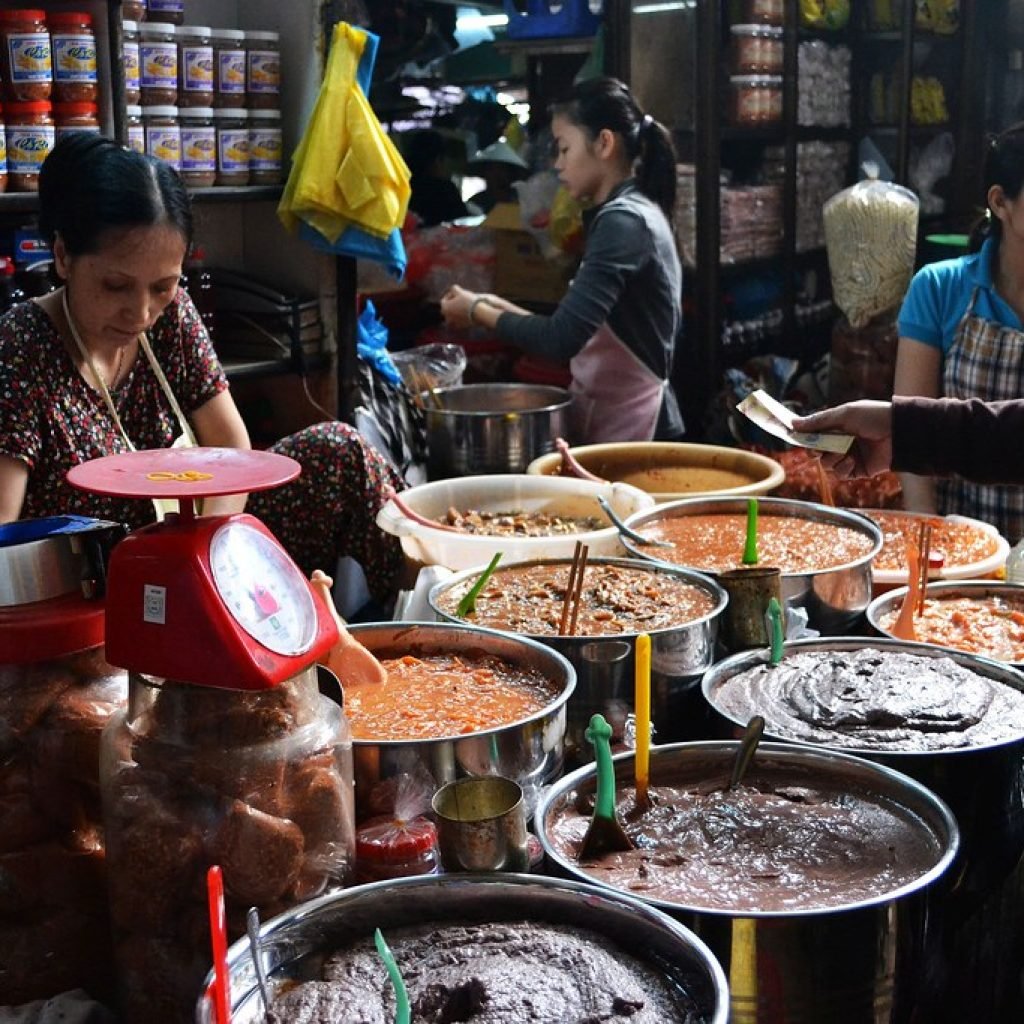
Welcome to Dong Ba Market, the bustling heart of Hue’s culinary scene and a vibrant cultural hub. Situated in the city center of Hue, Vietnam, Dong Ba Market is a sensory delight, offering an abundance of fresh produce, local delicacies, and traditional crafts. Join us on a travel guide-style journey through Dong Ba Market, where you’ll discover mouthwatering flavors, immerse yourself in local culture, and experience the vibrant atmosphere of this historic marketplace.
Located along the northern bank of the Perfume River, Dong Ba Market is a historic landmark in Hue. Established over a century ago, the market has witnessed the city’s changing landscape and played a significant role in the daily lives of locals. Its central location makes it easily accessible for both residents and visitors.
Dong Ba Market is a food lover’s paradise, offering a wide array of fresh ingredients, spices, and local specialties. Explore the market’s bustling food stalls and discover an array of Hue’s iconic dishes, such as bun bo Hue (spicy beef noodle soup), banh khoai (stuffed pancake), and nem lui (lemongrass skewers). Indulge in the rich flavors and aromatic spices that define Hue’s unique cuisine.
Stroll through the vibrant aisles of Dong Ba Market, and you’ll find an impressive selection of fresh produce, herbs, and spices. Locals flock here to purchase the freshest fruits, vegetables, and aromatic herbs for their daily cooking. Immerse yourself in the bustling atmosphere, and marvel at the vibrant colors and fragrant scents that fill the air.
Beyond its culinary offerings, Dong Ba Market is a treasure trove of local handicrafts and souvenirs. Explore the stalls selling traditional crafts, such as conical hats (non la), lacquerware, and intricately embroidered textiles. Take home a piece of Hue’s cultural heritage as a memento of your visit or find unique gifts for loved ones.
As you navigate through Dong Ba Market, you’ll encounter the iconic Dong Ba Market Bridge. This picturesque bridge spans over the Perfume River and provides a scenic vantage point to admire the bustling market below. Take a moment to capture photos of the vibrant market atmosphere, with its colorful stalls and boats passing by on the river.
Dong Ba Market is not just a marketplace; it’s a vibrant cultural experience that immerses you in the flavors, scents, and traditions of Hue. From savoring the local delicacies to exploring the colorful stalls and interacting with friendly vendors, the market offers a glimpse into the daily life of Hue’s residents. Discover the culinary delights, shop for traditional crafts, and embrace the lively ambiance of Dong Ba Market as you create lasting memories of your visit to this lively cultural hub in the heart of Hue.
Subscribe to see secret deals prices drop the moment you sign up!
